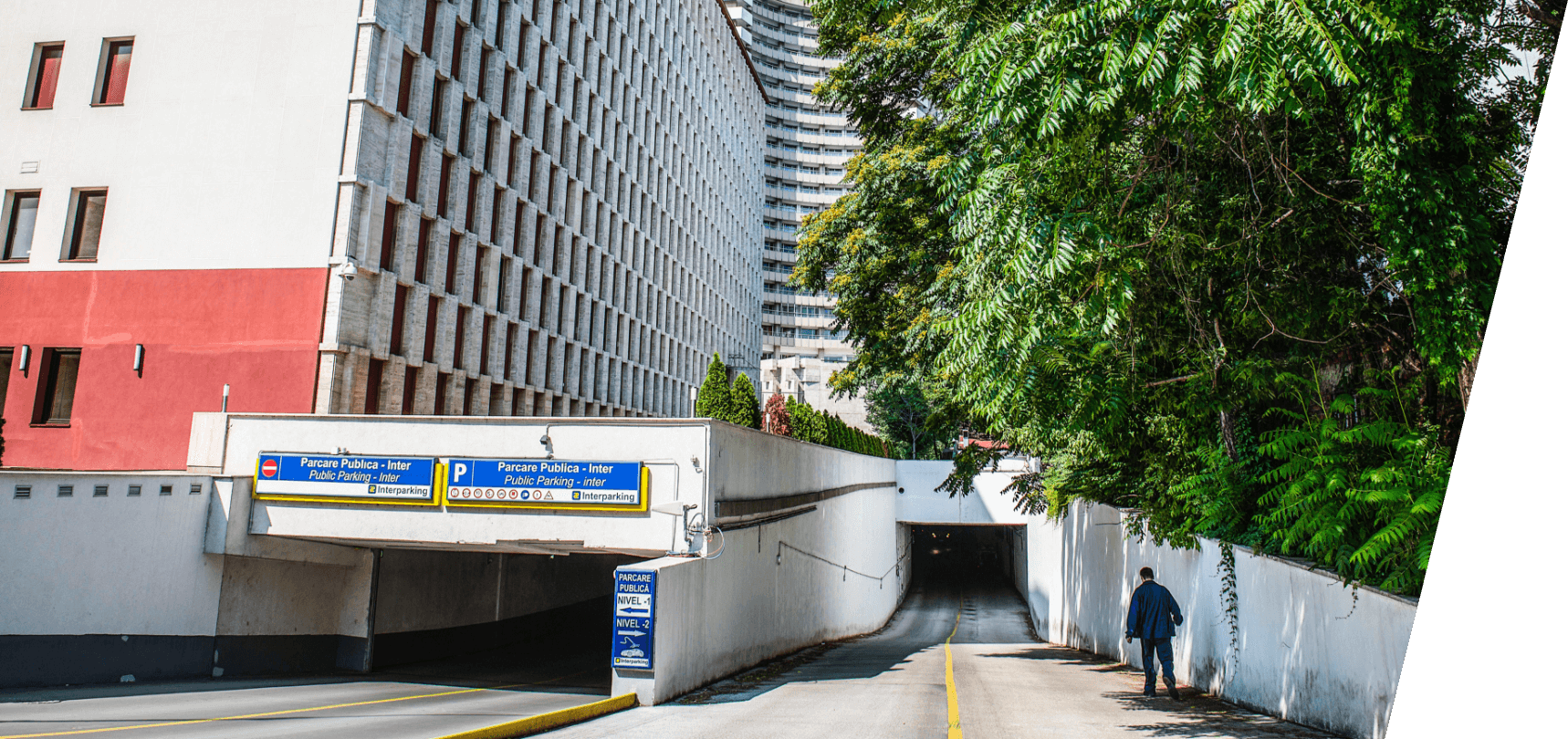Interparking’s corporate social responsibility (CSR) strategy ties in with the United Nations Sustainable Development Goals. Established in 2015, this agenda sets targets to be met by 2030 through 17 ambitious but realistic goals.
A number of levers can be used to improve environmental performance: LED lighting, automation, renewable energy supply contracts, greener mobility for employees, etc.
Interparking has held in- depth discussions with its reference shareholder, Ageas, to identify the UN goals to be implemented to contribute toward a more sustainable world. This strategic exercise highlighted four goals toward which Interparking is committed to making significant efforts.
“As part of a green loan agreement with BNP Paribas Fortis, Interparking has set itself additional ambitious targets for reducing its environmental footprint. The company is aiming to reduce its electricity consumption by 20% per parking space and its carbon footprint by 30%. A number of levers can be used: LED lighting, automation, 100% green energy contracts, greener mobility for employees, etc.“
CARLOS GARCIA-BORREGUERO
PROJECT DIRECTOR – CO2LOGIC
Goal 9: build resilient infrastructure, promote inclusive and sustainable industrialization and foster innovation
Goal 9: build resilient infrastructure, promote inclusive and sustainable industrialization and foster innovation
Interparking has fitted the Beffroi car park in Namur with the first “Lung in the city” and is gradually rolling out this initiative in other Group car parks.
In 2019, four ionization systems (neutralizing up to 70% of particles, 40% of fine particles and 20% of ultrafine particles) had been installed. To date, a total of 57 systems have been deployed in the group. An additional order for 75 units was placed at the end of 2021, reflecting Interparking’s desire to broadly expand this technology across its network.
We have also signed up with renewable energy providers to supply our installations with electricity. Interparking’s car parks are also fitted with photovoltaic panels where the configuration permits.
After having contracted in 2018 the first green credit line in Belgium where payment conditions are determined by the achievement of environmental commitments, Interparking had reached these two targets in 2020. The company therefore signed a with BNP Paribas Fortis including the following environmental commitments:
- Keep “Co2 Neutral” certification undertaken by an independent and certified body in all countries which Interparking group operates.
- Increase the number of Electrical Vehicles spaces by +300 compared to the number of Electric Vehicles parking spaces of the previous year.
Goal 10: reduce inequality within and among countries
Goal 10: reduce inequality within and among countries
Interparking has set up its parking school, which trains and mentors our teams and enables them to obtain training certificates, ranging from skilled worker to parking manager.
This school plays a key role in developing talents at Interparking: internal mobility pathways are not uncommon. Further training has enabled low-skilled or unskilled job seekers to get a meaningful job and gradually take on new responsibilities.
The cycles of training courses given at Interparking lead to two graduation ceremonies per year.
Goal 11: make cities and human settlements inclusive, safe, resilient and sustainable
Goal 11: make cities and human settlements inclusive, safe, resilient and sustainable
In recent years, we have increased the number of spaces for shared cars. In addition, we have more than 960 spaces for electric vehicles in our car parks. In Belgium, used together with the Pcard+, they also offer one of the most attractive rates in the country. Shared vehicles and electric cars help to reduce congestion and improve air quality in cities.
Goal 13: take urgent action to combat climate change and its impacts
Goal 13: take urgent action to combat climate change and its impacts
Interparking has reduced its average energy consumption per parking space by 18% compared with 2014. Our operations are also certified carbon neutral in all nine countries in which we operate. We are also replacing our lighting systems and elevators with low-energy alternatives and are involved in a project to combat deforestation.
We are also involved in projects to combat deforestation in Africa. For example, we actively support the Wanrou project in Benin, which is developing improved stoves. What does this involve? In northern Benin, close to Pendjari National Park, the alarming rate of biomass collection for cooking food is a major contributor to deforestation and desertification. Wanrou helps local people to adopt more efficient cooking methods by using improved stoves. Not only do these reduce the risks of burns and inhaling toxic fumes, but they also significantly slow down deforestation.
The Wanrou project (funded 100% by Interparking) saves three tonnes of CO2 emitted per household supported. They also save 50% on the cost of energy used to prepare meals. As a result, wood consumption per household has fallen by two tonnes per year per household. The project saves 36,000 trees per year.



